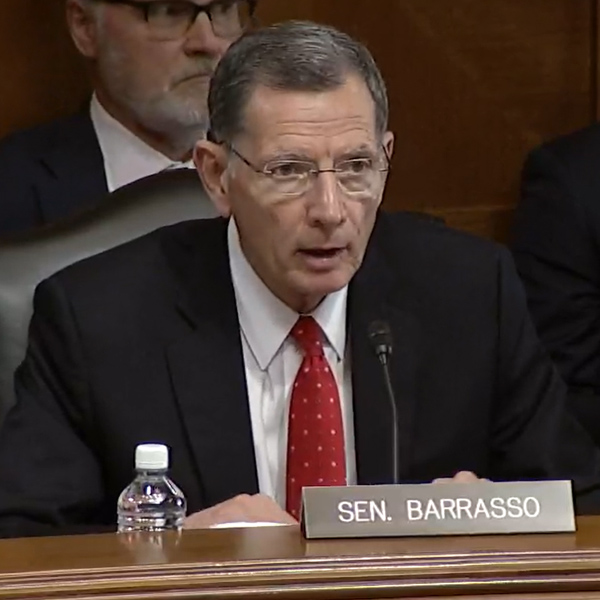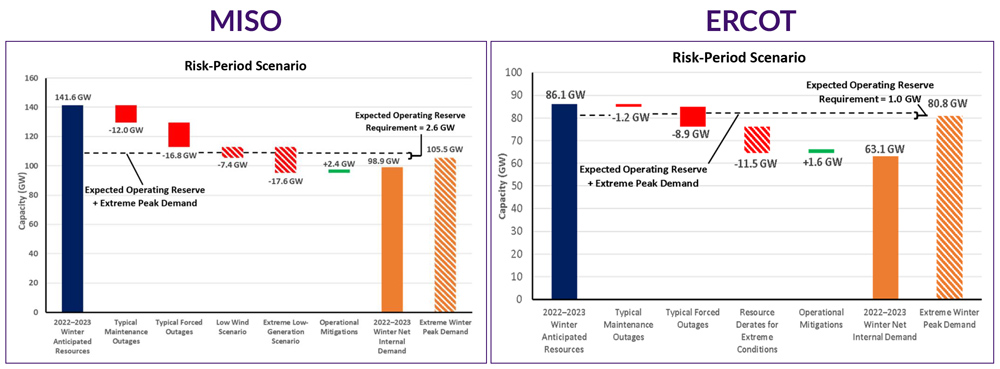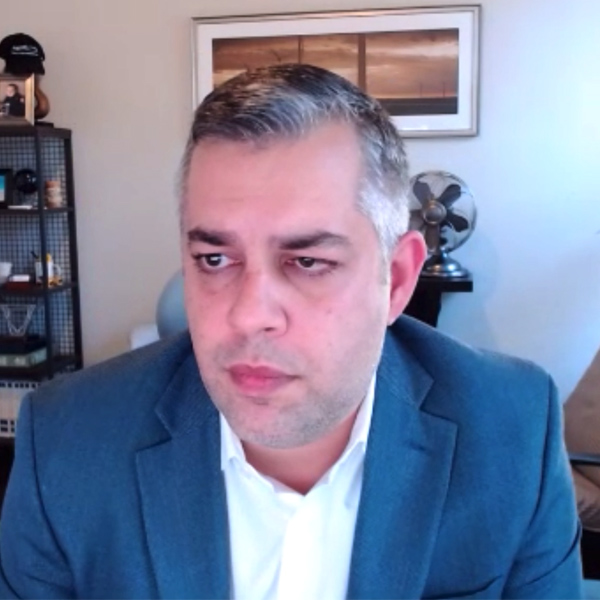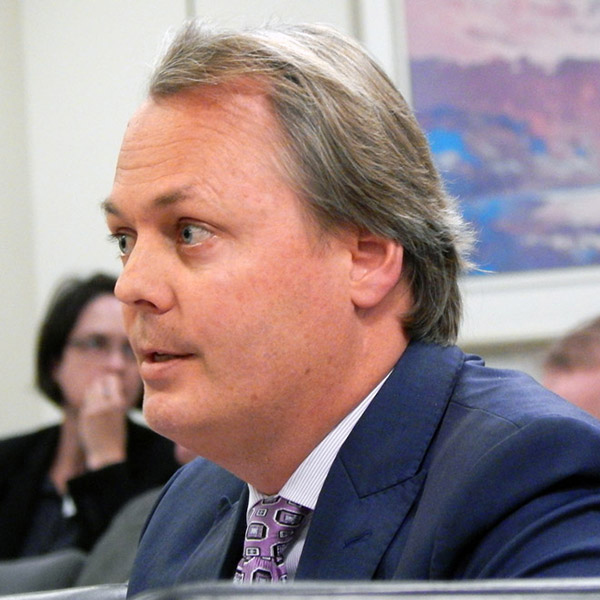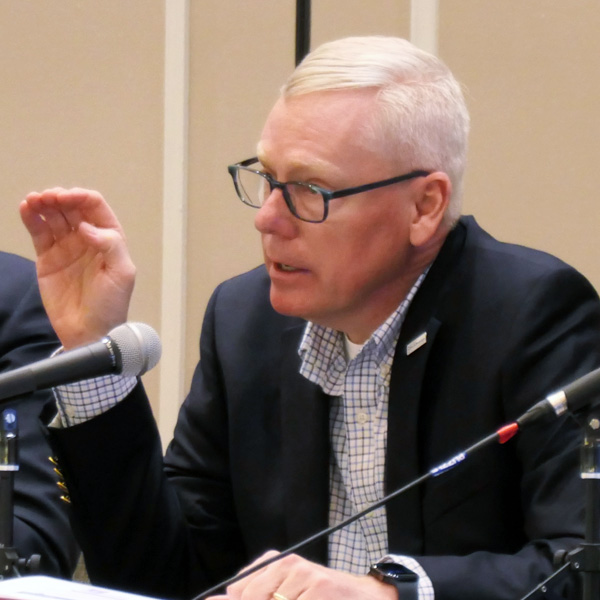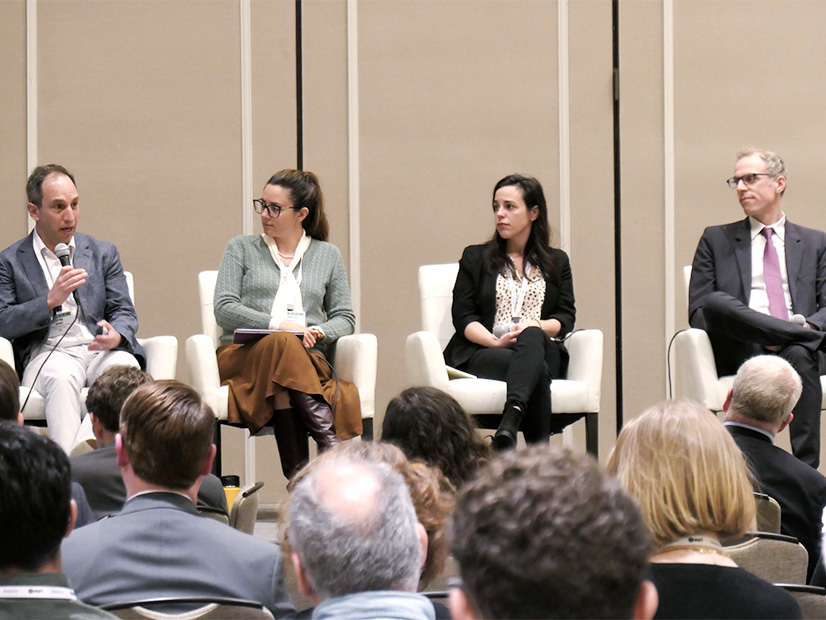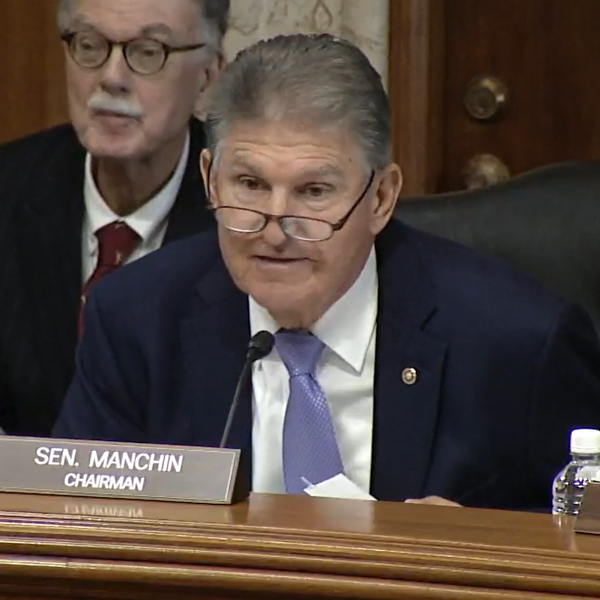 Sen. Joe Manchin | Senate ENR Committee
Sen. Joe Manchin | Senate ENR CommitteeSen. Joe Manchin (D-W. Va.) opened the Thursday confirmation hearing for three key posts at the Department of Energy by asking the nominees “a pretty simple, yes or no” question.
“Do any of you believe that the United States of America can be energy independent within the next 10 years without a robust clean fossil [fuel] energy program?”
And one after the other, David Crane, Jeffrey
Marootian and Gene Rodrigues all answered “no,” during the hearing of the Energy and Natural Resources Committee.
The question was particularly pointed for Crane, the controversial former CEO of independent power producer NRG, who was recently named to lead DOE’s new Office of Clean Energy Demonstrations (OCED), where he will oversee the development of both carbon capture and hydrogen hubs funded by the Infrastructure Investment and Jobs Act.
Marootian, who previously was head of the District of Columbia’s Department of Transportation, has been tapped as assistant secretary for energy efficiency and renewable energy, while Rodrigues, a former executive at Southern California Edison, will be assistant secretary for electricity delivery and energy reliability.
| Senate ENR Committee
Both Manchin, committee chair, and Sen. John Barrasso (R-Wyo.), the committee’s ranking member, had tough questions for Crane, who was infamously fired from NRG in December 2015 after the company’s stock fell 63% in 11 months. He has also been outspoken on the need for utilities and corporate America to move faster on decarbonization and during his tenure at NRG closed several of the company’s coal plants.
Given the financial losses at NRG, Barrasso asked Crane, “Why should we believe that you’re going to manage the American people’s money better than you managed the NRG money?”
While dramatic, the losses at NRG were “actually consistent with [losses at] other companies in the industry” at that time, Crane said. According to a 2016 article in Greentech Media, Dynegy, an NRG competitor, saw its stock’s value tumble 50% in the same time period.
Crane also countered that his long experience “at the intersection of big capital and big energy projects” gives him the skillset needed at the OCED. He also pledged to Manchin that he would implement the carbon capture and hydrogen provisions of the IIJA “with the same vigor that I implement every other provision.”
Those provisions, along with the Inflation Reduction Act’s expansion of the 45Q tax credits for carbon capture “are catalyzing a response that I think is going to be very good for the industry,” he said.
Similarly, Crane said the response to DOE’s call for initial proposals for $7 billion in hydrogen hub funding, which closed on Nov. 7, was “extremely enthusiastic,” ensuring that the projects chosen will meet the IIJA’s requirements that hubs be located in different regions and use different fuel stocks, including fossil fuels. (See DOE Opens Solicitation for $7B in Hydrogen Hubs Funding.)
Sen. Martin Heinrich (D-N.M.) also quizzed Crane on what metrics the OCED would use “to ensure that those large demonstrations are truly addressing the key risks, to be able to move those things towards adoption [and] deployment scale?”
Crane said his office would be focusing not only on the technical side of the demonstration projects but “more on the commercial offtake. These projects not only have to operate within their ring fence, but they have to be commercially sound. …
“The Department of Energy has a lot of negotiating influence in these public-private partnerships” for demonstration projects, Crane said. “But what we can’t do is structure projects that the private sector would never replicate. I will tell you, in my two months at the DOE, the word ‘replicability’ has passed my lips more often than it has in my previous 63 years.”
From Baseload to Grid-edge
Thursday’s hearing was the first meeting of the Energy and Natural Resources Committee since last week’s midterm elections, which left Democrats in control of the Senate, and Manchin likely to retain leadership of the committee.
The hearing also underlined other key trends in energy policy in Congress and at DOE. First, the administration continues to promote its commitment to an all-of-the-above approach to decarbonization, which includes at least the potential for carbon capture and sequestration and green hydrogen to provide economic growth for the struggling fossil fuel communities Manchin and Barrasso represent.
DOE is also focused on making the projects it funds with IIJA dollars commercially viable, which has resulted in the agency recruiting industry leaders like Crane and Rodrigues.
By contrast, Marootian, whose most recent position was as a special adviser to the Office of Energy Efficiency and Renewable Energy, clearly does not have the depth or breadth of experience of Crane or Rodrigues. For example, when Heinrich asked him if DOE would help to set standards to accelerate the deployment of advanced conductors and other grid-enhancing technologies, he said only that he would be “delighted” to work on the issue.
Rodrigues, on the other hand, smoothly navigated grid-related questions from Republicans and Democrats. Responding to a query about baseload power from Sen. John Hoeven (R-N.D.), Rodrigues said that the complexity of ensuring the reliability of the U.S. electric grid means “we need a mix of resources that can be used in different ways. Baseload energy is critically important.”
A top priority for the Office of Electricity, he said, will be “ensuring that each and every state’s policy decisions, policy preferences and decisions made around the resource mix that they want to serve their constituents — that the grid is enabled to take those resources and affordably get them to the American people.”
At the same time, Rodrigues also stressed the importance of developing grid-edge resources, like vehicle-to-grid technologies, to increase reliability.
While technological barriers still need to be overcome, Rodrigues said, “if and to the extent the grid is able to accept [grid-edge] resources, to integrate them, then we will have ways to increase reliability, increase affordability.”
The Office of Electricity will work to advance these technologies, Rodrigues said, “to ensure that the visibility of these resources, the controllability of these resources and … [the] policies are in place to ensure that consumers recognize the value of being a beneficial part of how we control our grid.”
